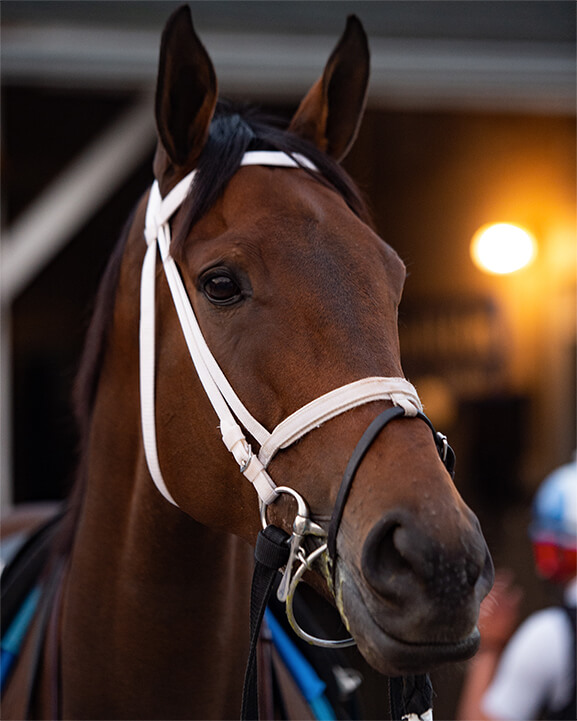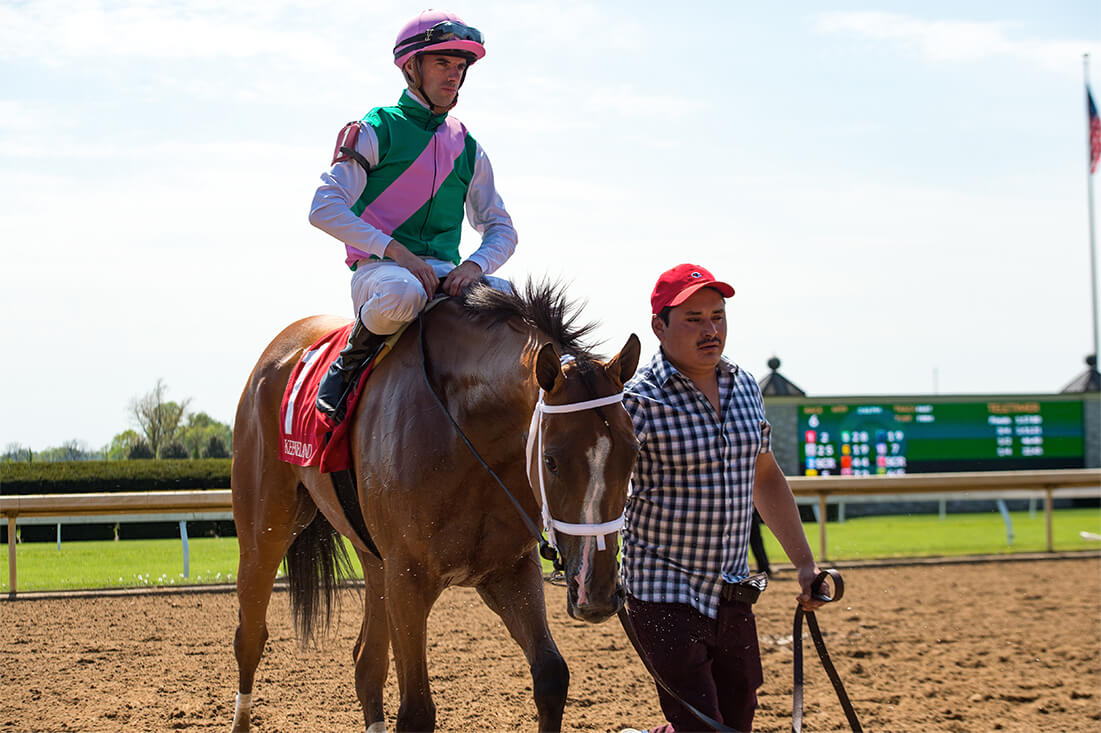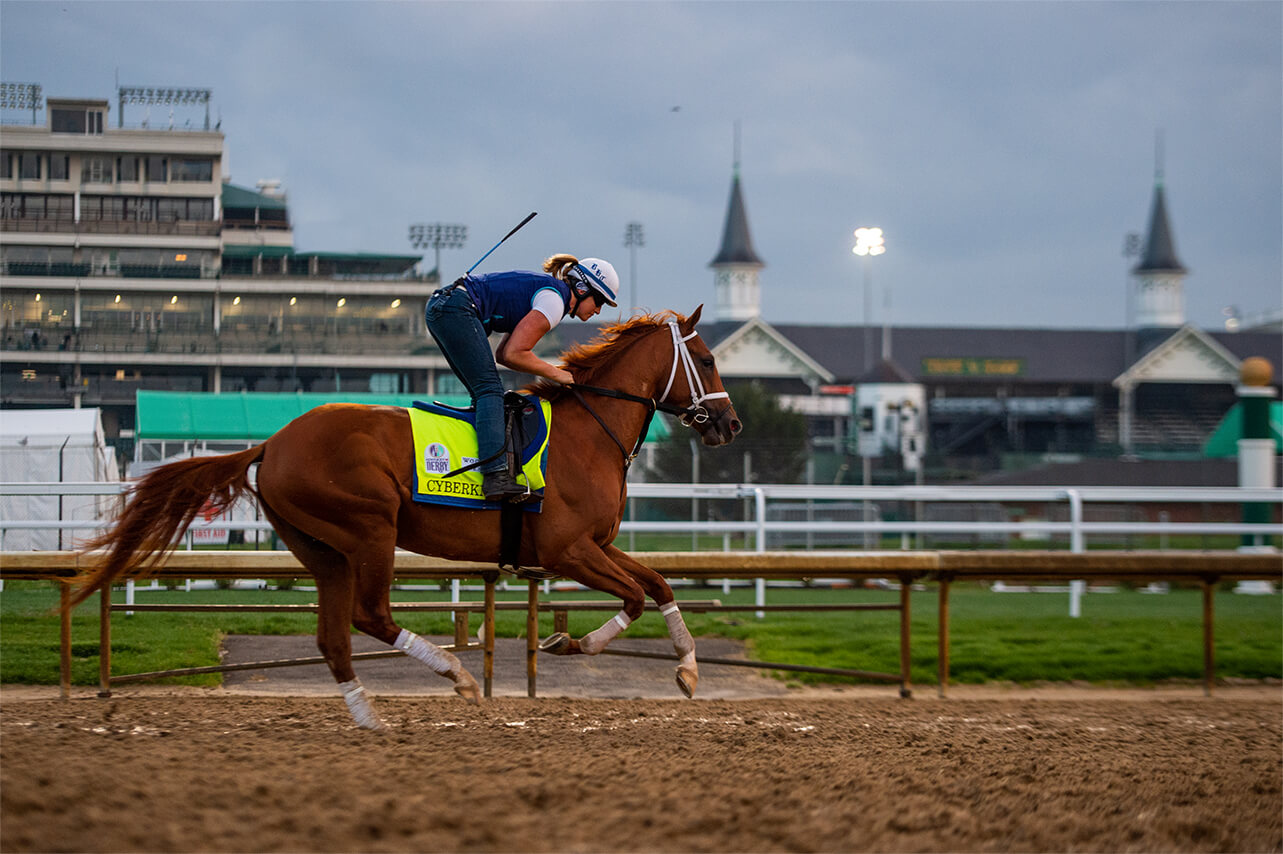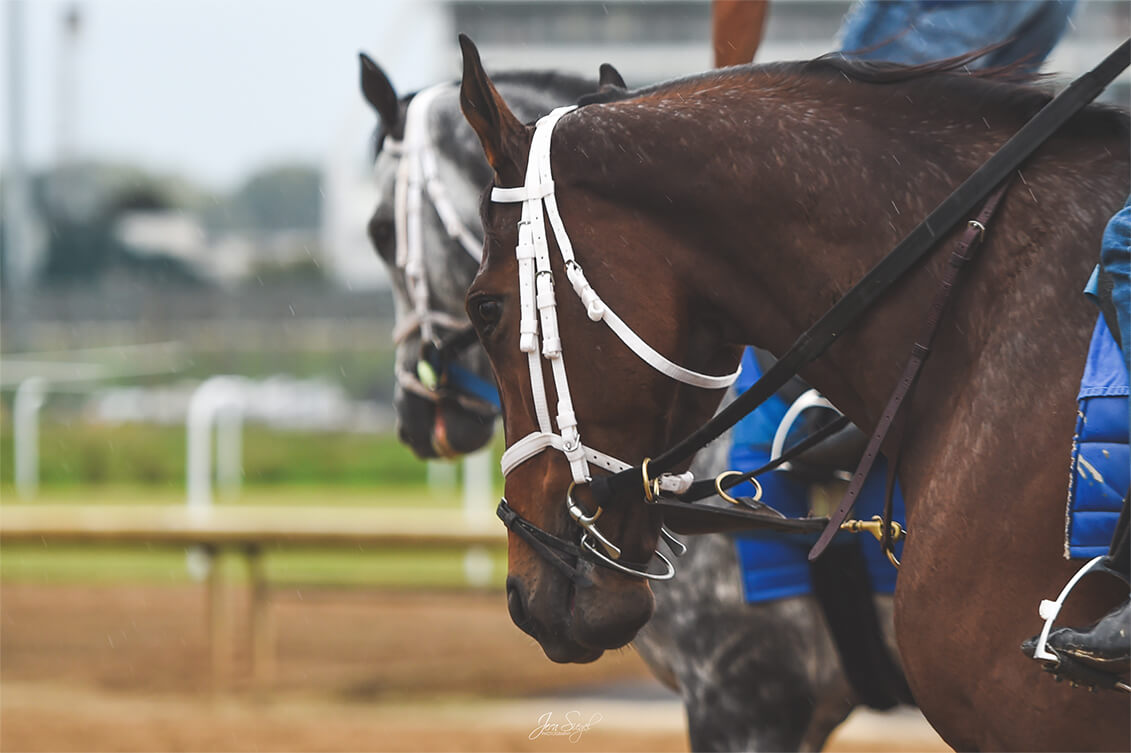Saddling a winner of the Kentucky Derby (G1) or Kentucky Oaks (G1) is a significant achievement for a Thoroughbred trainer. For Kentucky native Brad Cox, who grew up just blocks from Churchill Downs, such accomplishments mean something more. They are life-affirming.
Raised in Louisville, Ky., Cox knew he wanted to train horses from an early age. The fact that many of the racehorses that have helped Cox achieve memorable milestones have been bred in Kentucky is not lost on the 42-year-old conditioner. He won the first race of his career with Kentucky-bred One Lucky Storm in 2004 at Turfway Park at the age of 24 and he notched the initial stakes win of his career the following year with Kentucky-bred Tappin for Gold, winner of the Prairie Meadows Oaks. Fast forward to 2014, and Kentucky-bred Crave gave Cox his first Graded stakes victory with a win in the Prairie Meadows Cornhusker H. (G3).



